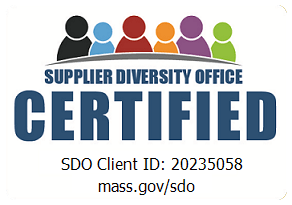Pay transparency has gained significant traction in recent years. Across virtually all industry sectors, employees and organizations are beginning to address the income inequality and wage disparities affecting women and people of color. Demystifying the traditionally secretive nature of employee compensation is a key step organizations can take to promote fair and equitable compensation for all employees.
According to the Society for Human Resource Management and the National Women’s Law Center, pay gaps narrow when employers are transparent about salaries. Increased transparency enables the identification and resolution of pay disparities. Even more significant is the wider progress towards greater equity and inclusion achieved by organizations that speak openly and directly about their approaches to employee compensation.
Nonprofits that introduce equitable, inclusive, and transparent pay practices benefit from improved employee morale, trust, and retention. They are also viewed more favorably by external stakeholders and job applicants because of their commitment to social responsibility and equal opportunity.
Pathways to Pay Transparency
In many municipalities, pay transparency is becoming a legal requirement. A law in New York City went into effect in late 2022 that requires salary information to be accurately listed on job postings. Similar laws are in place in cities and states nationwide, including California, Colorado, Connecticut, Maryland, Nevada, Rhode Island, and Washington. As of the beginning of 2023, one-fifth of workers nationwide are covered under pay transparency legislation.
Even when not required to do so, organizations are electing to openly share information about employee compensation. Today’s employees expect to know more about their company’s compensation practices. Employers, motivated by the need to retain employees to achieve business goals during the Great Reshuffle, are stepping up to meet this expectation. One survey reports that two-thirds of employees would switch employers for better access to pay transparency even if their compensation remains the same.
Moved by the opportunity to promote pay equity and the need to comply with the new legislation, nonprofit leaders have begun to examine the ways compensation decisions are made and communicated. Unfortunately, initial progress towards pay transparency is often stifled once leaders recognize that disclosing salary information without appropriate context risks alienating employees and increasing, rather than decreasing, feelings of uncertainty. The pathway towards transparency can be further disrupted once organizations examine their existing pay practices and find themselves unprepared to address pay inequities identified. Pay transparency can reveal pay gaps, but fixing them requires appropriate practice, communication channels, and manager education.
At Positively Partners, we believe that pay transparency is essential for promoting pay equity and a healthy organizational culture. We partner exclusively with nonprofits, schools, and social impact organizations to ensure organizations have access to the tools, resources, and evidence-based practices required to effectively transition to more transparent pay practices.
Learn more about how we can help your nonprofit organization promote fair and competitive salaries and align your compensation policies with your organization’s values and goals. You can also schedule a free consultation by emailing compensation@positivelypartners.org or completing our contact us form.









